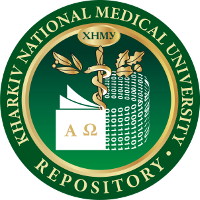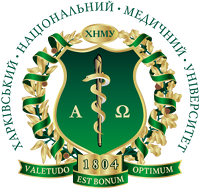Будь ласка, використовуйте цей ідентифікатор, щоб цитувати або посилатися на цей матеріал:
http://repo.knmu.edu.ua/handle/123456789/11224| Назва: | Confidentiality: Moral, Ethical And Legal Aspects |
| Автори: | Owusu, Asante George Honchar, Oleksii Гончарь, Алексей Владимирович Гончарь, Олексій Володимирович Ashcheulova, Tetyana Ащеулова, Татьяна Вадимовна Ащеулова, Тетяна Вадимівна |
| Дата публікації: | 12-лис-2015 |
| Бібліографічний опис: | Owusu A. G. Confidentiality: Moral, Ethical And Legal Aspects / A. G. Owusu // Diagnostical methods in internal medicine and their ethical aspects : 5th Scientific Students’ Conference, Kharkiv, 12th of November 2015 : abstract book. – Kharkiv : KhNMU, 2015. – Р. 17–18. |
| Короткий огляд (реферат): | Confidentiality is one of the core duties of medical practice. It requires health care providers to keep a patient's personal health information private unless consent to release the information is provided by the patient. Ethical codes generally focus on professional etiquette and courtesy towards fellow physicians rather than on relationship with patients. Law provides boundaries of actions, set by society, beyond which a person may go only by risking external sanctions, such as incarceration or loss of medical license. Ethical codes involve generalities while laws tend to be more specific. An example of ethics code is the Hyppocratic oath, formulated in the 5th century BC. It is concerned with physician’s doing no harm, refraining from performing abortions and giving deadly and maintaining strict confidentiality. Law on the other hand may permit abortions under certain circumstances, permit the giving of potentially lethal drugs in extreme situations and sanction the violation of confidentiality when the interest of society demands. Both law and ethics rest on the principle self-determination by competent individuals, a concept of justice and fairness to be afforded to all patients by both medical practitioners and society. The doctor must always maintain the highest standards of professional conduct, without being influenced by motives or profit. A doctor must bear in mind the obligation of preserving human motives or profit. A doctor should preserve the absolute secrecy on all he knows about his patient because confidence is entrusted in him. Patients routinely share personal information with health care providers. If the confidentiality of this information were not protected, trust in the physician-patient relationship would be diminished. Patients would be less likely to share sensitive information and will not be willing to seek medical care, which could negatively impact their care. The obligation of confidentiality prohibits the health care provider from disclosing information about the patient's case to others without permission and encourages the providers and health care systems to take precautions to ensure that only authorized access occurs. Anyways, confidentiality can be breached when there is concern for safety of other people or when legal requirements insists you report such conditions or circumstances example, measles, rabies, anthrax etc. |
| URI (Уніфікований ідентифікатор ресурсу): | https://repo.knmu.edu.ua/handle/123456789/11224 |
| Розташовується у зібраннях: | Наукові роботи молодих вчених. Кафедра пропедевтики внутрішньої медицини № 1, основ біоетики та біобезпеки |
Файли цього матеріалу:
| Файл | Опис | Розмір | Формат | |
|---|---|---|---|---|
| Asante_gr.4.docx | 15,5 kB | Microsoft Word XML | Переглянути/відкрити |
Усі матеріали в архіві електронних ресурсів захищені авторським правом, всі права збережені.

